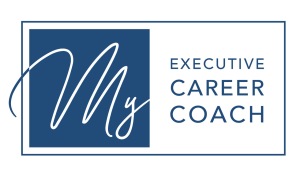By Linda Van Valkenburgh, MS, CCMC, CJSS, CSMCS, CELDC
About 85% of open positions are filled through networking. This means that if you want to move forward with your career, you need to get talking. Networking with other professionals in your industry not only opens you up to new opportunities, but it allows you to become more connected with your current industry.
Being a successful networker isn’t about just knowing a lot of people. Follow these tips to make the most of your next cocktail hour.
Be True to You
Don’t try to portray a false image. People will figure out you’re not authentic, and this will tarnish their impression of you. You will also blend into the crowd of other professionals who display superficial behavior.
Compare this to the trend in marketing we see. Companies that focus on flashy marketing campaigns don’t perform as well as those that strive to be authentic. People want to form real relationships. You can do this in your networking by being a real human being and not a walking advertisement for yourself.
Be Honest and Direct
While you want to be impressive, you also want to be honest. While people may not catch your falsehoods at first, they will eventually. When this happens, your brand is tarnished forever. People will remember your dishonesty and translate that to your professional performance.
You also want to be direct in your networking. Respect people’s time, and they’ll respect yours. Getting to the point is appreciated by business professionals who have numerous demands on their time.
Bring Value
Now that you’ve ditched the cheesy personal sales pitch, it’s time to create a new strategy. Offer the person you’re networking with something of value. Remember, the people you’re networking with are looking to further their own careers.
You don’t have to offer anything significant. Sometimes all it takes is a small piece of advice or a kind gesture. The key to making an impact with your offered value is to not expect anything in return. This small gesture now can lead to exponential dividends over the long term.
Ask Specific Questions
One trick to making yourself memorable is to be engaged and interested in the person you’re speaking with. Show the other person you’re paying attention by asking specific questions. Listen to what they say and form a question directly related to what they’ve said.
Doing this can also help you with the previous tip. Asking specific questions can help you to better understand the other person’s wants and needs. This will help you narrow in on their needs to determine how you can offer value.
Follow Up
You’ve spent time and energy getting to know someone. Show that you care and build on that investment by following up with the people you network with. You don’t have to do anything extravagant; a simple follow up phone call or email will suffice.
When you follow up, express your appreciation for the conversation. Specifically, mention something they said or any value they gave you. It’s also helpful to ask a question. This encourages continued communication and helps develop the relationship.
Become a Successful Networker
The next time you attend a professional event, try putting these tips into practice. Try to be direct and true to yourself. Ask specific questions and learn about the person you’re networking with. Then offer them some value without the expectation of anything in return. The people you’re networking with will appreciate your authenticity and generosity. This will make an impression and make you memorable.
Sign up for one of our Senior Executive Round Table events and connect with other executives while practicing your networking skills.
Let’s get to work!
Linda
If you are ready to move your executive career forward contact me today at 203-323-9977 or lindavan@myexecutivecareercoach.com










